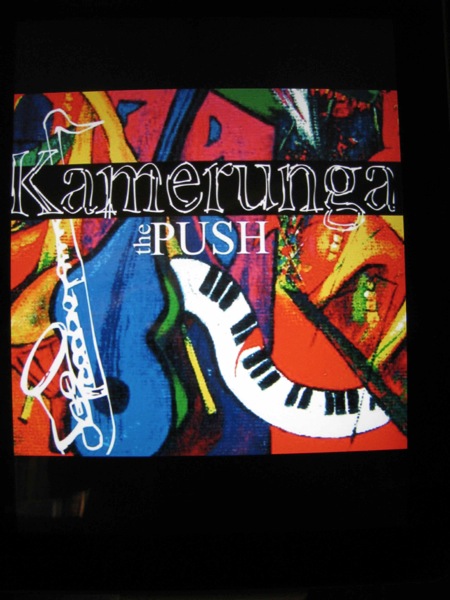Kamerunga The Push (3.5*)

Back on the cusp of the eighties, most Thursday nights you would have found Hughesy in the back bar of Townsville’s Royal Hotel enjoying the Burdekin Bush Band’s take on Australian folk music.
I’m not sure what the BBB’s actual background was - more than likely they emerged from the Townsville Folk Club or some similar organisation - but I’ve always had a soft spot for trad material, influenced by what Fairport Convention and Steeleye Span had done within the British tradition and the way the early albums by The Band created something that seemed to have grown out of its American equivalent.
Around the same time I was enjoying those Thursday nights with a number of beers washing down a counter meal of corned beef, white sauce and damper I’d also encountered the first Redgum album, If You Don’t Fight You Lose, with its scathing approach to various aspects of the Australian politics of the day.
I found myself thinking back to those times as the first notes of The Push, the first album by a Cairns aggregation called Kamerunga hit the speakers here in Hughesy’s office.
Farewell and adieu to you, Brisbane ladies... is the awfully familiar beginning of Brisbane Ladies, a staple of countless Australian folkies’ repertoires, though the trad version is a fair step away from the Kamerunga rendition.
It’s obvious that what’s on offer here is a carefully constructed fusion of traditional Australian music, original material and Celtic elements filtered through a world music/funk/ reggae sensibility designed to work in a live setting at some of the larger festivals - Woodford, Port Fairy, BluesFest in Byron and the National Folk Festival all get a guernsey in the band’s publicity material.
And it works. The opening track cuts in and out of Brisbane Ladies (retitled Farewell and Adieu) and the instrumental Ella’s Folly, showcasing Peter Ella’s string (mandolin, guitar, fiddle) skills.
A jazzy Congress Reel comes before Mulligan, an original composition recounting events around the discovery of the Palmer River goldfield which in turn lead to the settlement of Cairns and Cooktown. You get a contemporary feeling through Mulligan’s spoken semi-rap delivery though there are indigenous elements lurking in there as well. Nice.
Didgeridoo and mandolin lead into the medley McLeod’s Farewell/A Bridge Too Far/Afreels where the outfit’s instrumental chops are on tasteful display and then it’s back to the pages of Australian folklore for the convict lament Moreton Bay, sung by Andree Baudet (who also contributes sax and keys to the mix). Slightly up tempo compared to the versions that’d be doing the rounds of the folk clubs but you’d suspect it goes down well live which is, after all, presumably the point of the exercise.
The rhythm section of Tony Hillier (rhythm guitar), Will Kepa (bass) and Ben Hakalitz (drums, ex-Yothu Yindi) are on display in the background to Fanfare For The Common Mandolin, which ranges around the globe and then it’s back to trad. arr. territory for Lachlan Tigers and Stringybark Creek.
The former’s not quite the rousing anthem you find in the trad. setting, but it works well enough and the spoken word version of the Kelly Gang’s activities on the other track isn’t your common or garden studio material.
Listening, you’d suspect that much of the intention behind the recording is to provide something that’ll go down well in the merch stall at any of the big festivals previously mentioned. You can imagine the scenario as some festival goer scans what’s on offer, and picks up on the rather eye-catching cover: Kamerunga, hmmm. They weren’t bad. Might just buy that one....
Given that context I’m inclined to gloss over a couple of things that I didn’t quite like - the odd tempo of the intro to the concluding South Australia Suite, for example. Once you’re away from the mainstream it’s a matter of niche marketing, and that festival circuit would be a substantial niche that’s worth exploring.
Much of what’s on offer here might not appeal to the purist, but if you’re after something traditional-based that’s well played by a group of fairly classy musos Kamerunga’s The Push could well be right up your alley.

